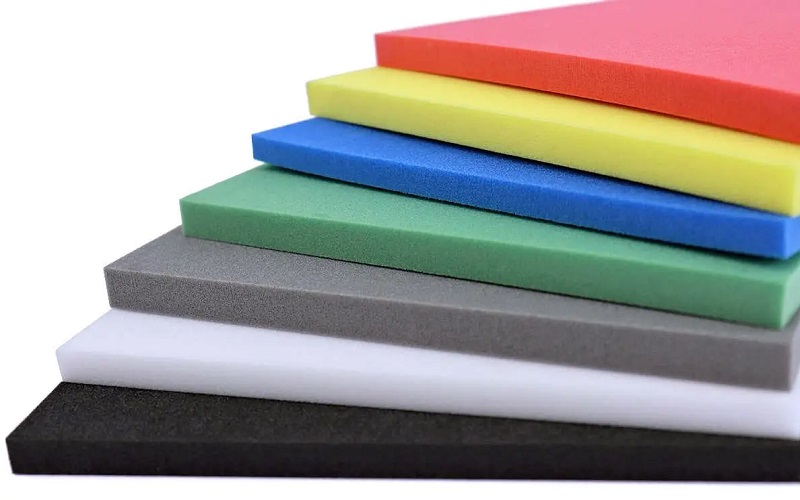PS plast, encompassing polystyrene, extruded polystyrene, expanded polystyrene EPS, high impact polystyrene, acrylonitrile butadiene styrene, and methyl methacrylate formulations, is a cornerstone thermoplastic polymer in the plastics industry.
Renowned for its materials polystyrene properties, such as dimensional stability, chemical resistance, and excellent electrical insulator capabilities, PS plast excels in the injection molding process and food packaging applications.
This guide explores the characteristics, benefits, and applications of PS plast, extruded polystyrene, expanded polystyrene, high impact polystyrene, and related polystyrene foam materials, highlighting their role in food packaging, molded polystyrene products, and manufacturing processes like injection molding.
What is PS Plast and Its Variants?
PS plast, or polystyrene PS, is a synthetic polymer derived from monomer styrene, offering naturally transparent, rigid plastic properties ideal for food packaging and injection molding.
Understanding its composition and types is essential for leveraging materials polystyrene in diverse applications.
Composition of Polystyrene
Polystyrene PS is formed through polystyrene co polymerization of styrene molecules, creating polymer chains with a chemical formula (C8H8)n.
Pure polystyrene, also called general purpose polystyrene or regular polystyrene plastic, is naturally transparent with a high melting point and glass transition temperature, making it suitable for molded polystyrene products like test tubes, petri dishes, and polystyrene containers.
Variants such as acrylonitrile butadiene styrene, styrene co methyl methacrylate, and styrene butadiene rubber enhance mechanical properties and flexibility, enabling PS plast to capture intricate design details in food packaging applications and injection molding processes.
The Dow Chemical Company has developed advanced polystyrene co formulations for superior performance.
Types of Polystyrene
PS plast, also known as ps polystyrene or ps plastic, includes general purpose polystyrene, high impact polystyrene, extruded polystyrene, expanded polystyrene EPS, and oriented polystyrene.
General purpose polystyrene is rigid and transparent, ideal for polystyrene film and disposable food containers.
High impact polystyrene offers toughness, suitable for automotive components.
Extruded polystyrene provides thermal insulation, while expanded polystyrene EPS is used in foam form for packaging materials.
Polystyrene foam materials vary in low melt flow index for rigid applications and higher melt flow index for flexible ones, making ps polystyrene and ps plastic versatile for food packaging and protective packaging.
The diversity of PS plast variants makes them essential in the plastics industry.
By understanding their physical properties, manufacturers can select suitable materials polystyrene for specific projects, from food packaging to electronics protection.
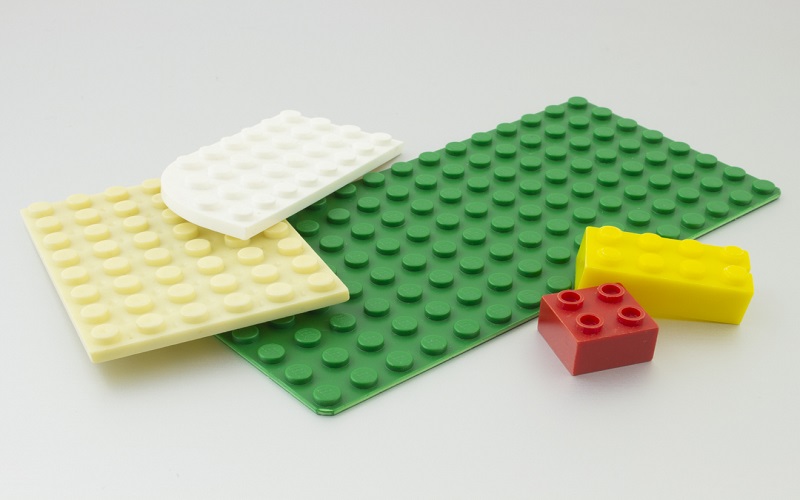
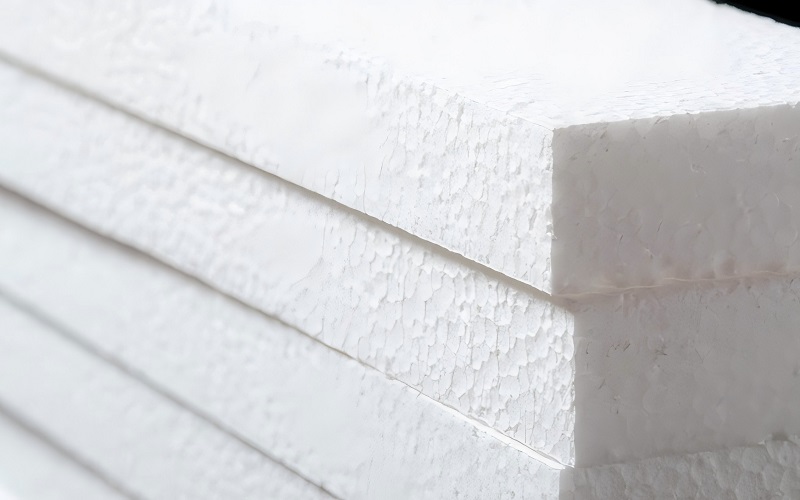
Benefits of PS Plast in Injection Molding and Food Packaging
Polystyrene PS, including extruded polystyrene, expanded polystyrene EPS, and high impact polystyrene, offers significant advantages in the injection molding process and food packaging applications.
Its properties drive its adoption in the packaging industry.
Exceptional Mechanical and Thermal Properties
PS plast is known for its dimensional stability, rigid plastic structure, and excellent electrical insulator properties, making it ideal for automotive components and electronics protection.
High impact polystyrene enhances mechanical properties like toughness and impact resistance, perfect for durable products compared to other materials.
Extruded polystyrene and expanded polystyrene EPS provide lightweight polystyrene foam with thermal stability and thermal insulation, ideal for food packaging applications and protective packaging, despite their lower melting point compared to standard polystyrene.
The glass transition point ensures reliability in high-temperature environments.
Chemical Resistance for Food Safety
PS plast exhibits chemical resistance to organic compounds, fatty foods, and other organic compounds, making it suitable for disposable food containers and polystyrene containers in food packaging.
Unmodified polystyrene and standard polystyrene maintain structural integrity at their glass transition temperature, while acrylonitrile butadiene styrene adds durability for reusable food containers.
However, PS plast is less resistant to organic solvents and chlorinated solvents, which can degrade polymer chains, requiring careful handling to avoid styrene exposure when compared to other materials.
Cost-Effectiveness and Processability
PS plast is cost-effective, with general purpose polystyrene and expanded polystyrene EPS being affordable for plastic packaging.
The injection molding process allows molded polystyrene to capture intricate design details, while extruded polystyrene and polystyrene film are easily processed, reducing costs in the packaging industry.
Methyl methacrylate and acrylonitrile butadiene styrene formulations enhance processability, making PS plast a preferred material for high-volume production.
The Injection Molding Process for PS Plast
The injection molding process is a key manufacturing process for PS plast, producing molded polystyrene products for food packaging and other applications.
Understanding this process ensures optimal results.
How Injection Molding Works with Polystyrene
The injection molding process involves heating polystyrene PS pellets to their melting point in a heated chamber, then injecting the melted material into a mold cavity under pressure.
The cooled plastic solidifies into molded polystyrene, such as test tubes, petri dishes, or disposable food containers.
High impact polystyrene and general purpose polystyrene are ideal due to their low melt flow index, ensuring dimensional stability.
Acrylonitrile butadiene styrene and methyl methacrylate enhance durability and clarity in the injection molding process.
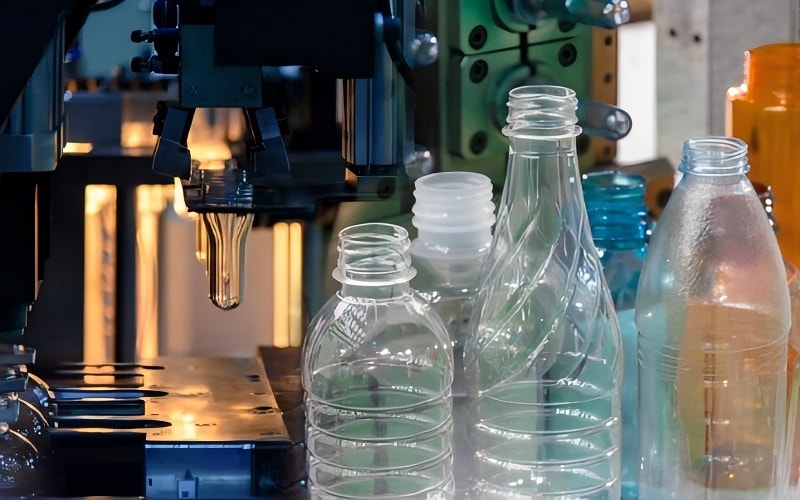
Advantages of Injection Molding for PS Plast
Injection molding enables PS plast to capture intricate design details, making it suitable for polystyrene containers and food packaging applications.
The process supports high-volume production, reducing costs for the packaging industry.
Extruded polystyrene and expanded polystyrene EPS can be molded into foam form for protective packaging, while methyl methacrylate ensures transparency for polystyrene film.
The Dow Chemical Company has developed formulations to optimize injection molding for PS plast.
The injection molding process maximizes the utility of materials polystyrene, enabling manufacturers to produce high-quality products that meet industry standards in food packaging and beyond.
Applications of PS Plast
PS plast, including extruded polystyrene, expanded polystyrene EPS, and high impact polystyrene, is used across industries for its versatility and physical properties. Its applications are diverse and impactful.
Food Packaging Applications
Polystyrene PS is a leader in food packaging applications, with disposable food containers, polystyrene containers, and polystyrene film widely used.
Expanded polystyrene EPS serves as a lightweight packing material, offering thermal insulation for fatty foods.
General purpose polystyrene is naturally transparent, ideal for showcasing products, while high impact polystyrene ensures durability in plastic packaging.
Methyl methacrylate enhances aesthetic appeal in food packaging.
Medical and Laboratory Uses
PS plast is critical for medical products like test tubes and petri dishes, thanks to its clarity and chemical resistance.
Molded polystyrene is sterilizable, making it suitable for laboratory environments.
Unmodified polystyrene maintains dimensional stability at its glass transition point, while acrylonitrile butadiene styrene adds strength for reusable components, ensuring reliability in medical applications.
Insulation and Protective Packaging
Extruded polystyrene and expanded polystyrene EPS excel in thermal insulation for construction and protective packaging for electronics protection.
Polystyrene foam materials provide cost-effective packing material, safeguarding fragile items.
PS plast’s thermal stability and foam form make it ideal for insulation applications, reducing energy costs.
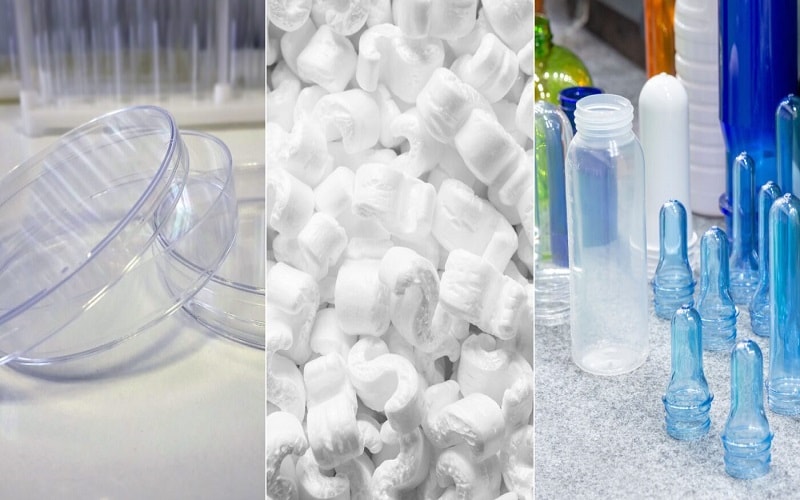
Characteristics of PS Plast
The physical, thermal, and chemical properties of PS plast, extruded polystyrene, and expanded polystyrene EPS define their suitability for various applications. These characteristics are critical for selection.
Physical and Thermal Properties
Polystyrene PS has a high melting point and glass transition temperature, ensuring thermal stability. General purpose polystyrene is naturally transparent, while high impact polystyrene offers toughness.
Expanded polystyrene EPS provides low density in foam form, ideal for thermal insulation.
Extruded polystyrene balances rigidity and lightweight properties, suitable for food packaging applications.
Methyl methacrylate and acrylonitrile butadiene styrene enhance clarity and durability.
Chemical and Environmental Properties
PS plast resists organic compounds and other organic compounds but is susceptible to organic solvents and chlorinated solvents, which can degrade polymer chains.
Styrene exposure must be minimized during processing.
Polystyrene products can be subsequently recycled, using carbon dioxide in expanded polystyrene EPS production to create foam form, enhancing sustainability.
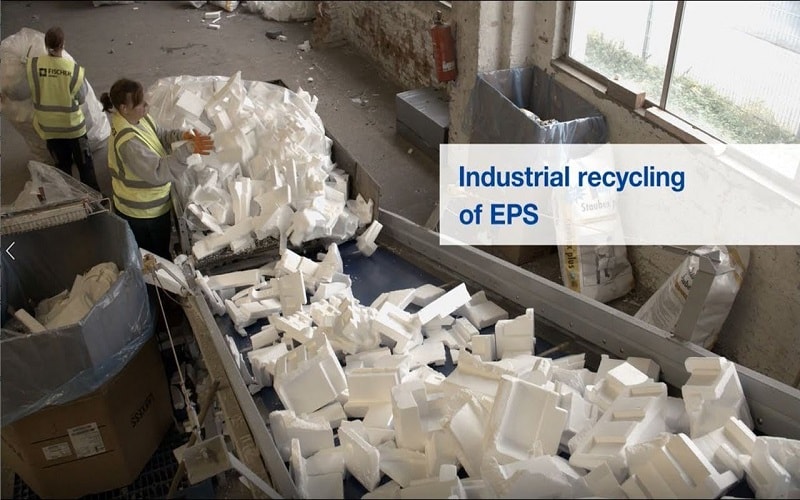
Challenges and Considerations for PS Plast
While PS plast offers numerous benefits, challenges must be addressed to ensure optimal performance in injection molding and food packaging applications.
Processing and Compatibility Challenges
The injection molding process requires precise temperature control to avoid degradation at the glass transition point.
Unmodified polystyrene may be brittle, necessitating high impact polystyrene or acrylonitrile butadiene styrene for durability.
Organic solvents can damage PS plast, so compatibility with other plastics is critical. Methyl methacrylate improves processability for specific needs.
Environmental and Recycling Considerations
Expanded polystyrene EPS faces disposal challenges, but polystyrene products can be subsequently recycled.
Innovations from the Dow Chemical Company enhance sustainability, reducing environmental impact. Protecting PS plast from organic solvents during use ensures longevity.
Conclusion
In conclusion, polystyrene is a versatile thermoplastic polymer excelling in the injection molding process and food packaging applications.
Materials polystyrene offer dimensional stability, chemical resistance, and cost-effectiveness, making them suitable for disposable food containers, medical products, and thermal insulation.
Despite challenges like styrene exposure, PS plast remains a key material in the plastics industry.

